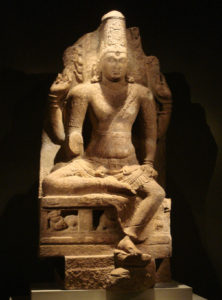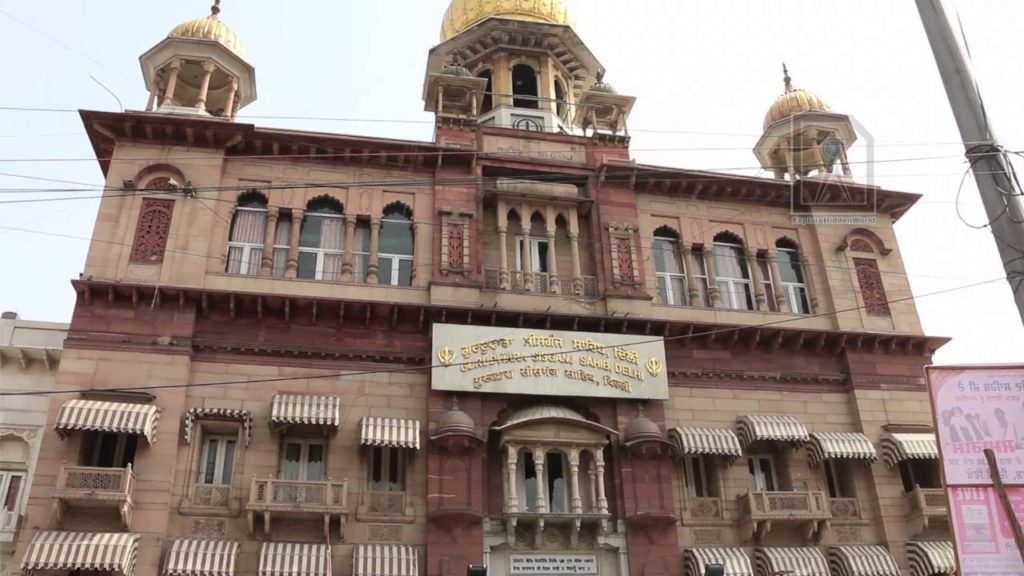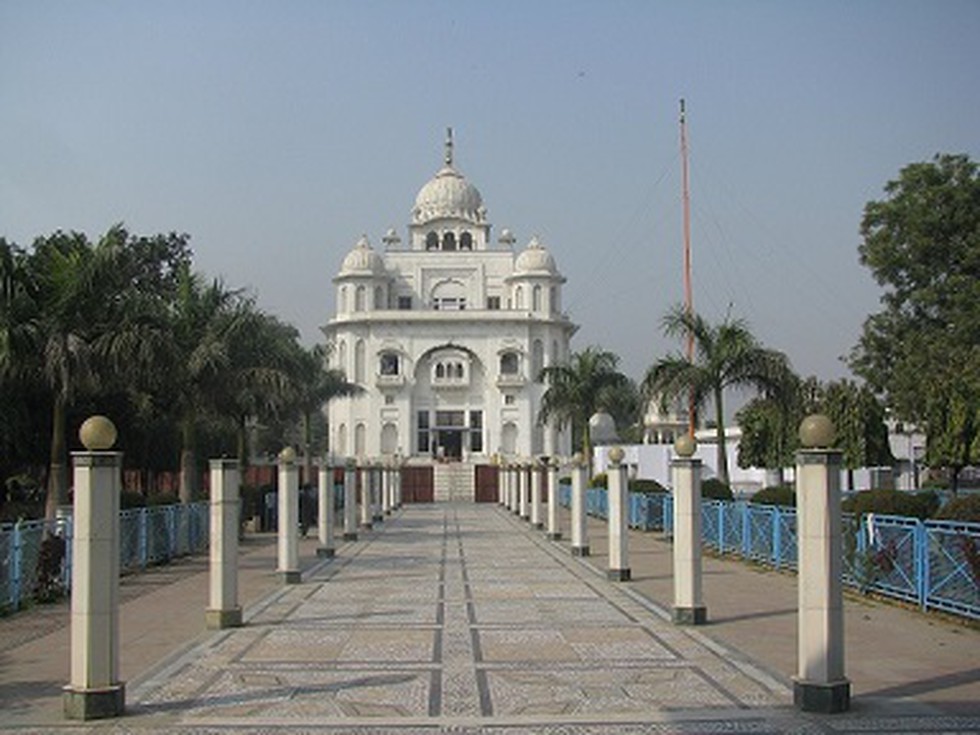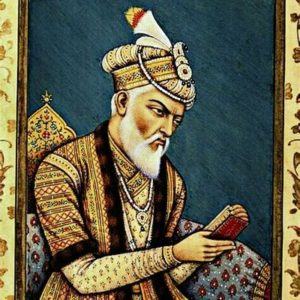Human Rights guardian Guru Teg Bahadur through the prism of Zafarnama
Guru Teg Bahadur Sahib, his wife, his son, and four grandsons sacrificed their lives fighting tyranny and injustice. Aurangzeb, one of the most powerful rulers of Hindoostan, was neither able to convince the Ninth sovereign to surrender to his demands nor was he able to capture the Tenth master. The Epistle of Victory –Zafarnama, in the Persian language written by Guru Gobind Singh, shattered the mental state and logic of religious fanaticism of Aurangzeb. WSN columnist Gurmeet Singh presents Guru Sahib’s life from the prism of Zafarnama, where the choice of words and the inherent message is relevant in today’s current state of affairs across India and the world.
![Guru Teg Bahadur Sahib, his wife, his son, and four grandsons sacrificed their lives fighting tyranny and injustice. Aurangzeb, one of the most powerful rulers of Hindoostan, was neither able to convince the Ninth sovereign to surrender to his demands nor was he able to capture the Tenth master. The Epistle of Victory –Zafarnama, in the Persian language written by Guru Gobind Singh, shattered the mental state and logic of religious fanaticism of Aurangzeb. WSN columnist Gurmeet Singh presents Guru […]](https://www.theworldsikhnews.com/wp-content/uploads/2021/05/Zafarnama-360x266.jpg)
SINCE AURANGZEB, THE RULERS HAVE CHANGED, transfer of powers has happened, yet the attitude and working of the state have not moved an inch. Myanmar, Sri Lanka, China, Spain, Pakistan, the US, Rwanda and many more have been more tyrant and biased towards their populations including Sikhs, Kashmiris, Nagas, Rohingyas, Tamils, Uyghurs, Catalans, Iraqis, Tutsis and other minorities and nationalities. State Persecution has grown in the last century and more aggressively in the last 50 years.
ਬਬੀਂ ਗਰਦਿਸ਼ੇ ਬੇਵਫਾਏ ਜ਼ਮਾਂ ਕਿ ਬਗੁਜ਼ਸ਼ਤ ਬਰ ਹਰ ਮਕੀਨੋ ਮਕਾਂ
B-been Gardish-E Be-wafay-e Zamaan, Ke B-Guzasht Bar Har Makeen-O Makaan (108)
This in Zafarnama means, “look at the unfaithfulness of the world that everyone is crossing the house of others without any restriction, forcibly snatching possessions of others.”

India has not changed since Aurangzeb. Majoritarianism and fascism are in the air. India has relinquished the core principle of governance of the people – Vasudhaiva Kutumbakam -a Sanskrit phrase found in Chapter 6 of the Maha Upanishad, which means “the world is one family”.
 This verse of Maha Upanishad is engraved in the entrance hall of the Parliament of India, but history stands as testimony to the fact that democratically elected governments have held this principle in the breach.
This verse of Maha Upanishad is engraved in the entrance hall of the Parliament of India, but history stands as testimony to the fact that democratically elected governments have held this principle in the breach.
The demarcation of Punjab on linguistic lines, distribution of river waters as per riparian law, the attacks and genocide of 1956, 1982, 1984, 1988, 2020, extrajudicial killings of Punjabis and Kashmiris, demolition of Babri Masjid, the Naga Accord, the annulment of Article 370 in Kashmir, formulation of NRC, CAA and the most recent of all, the three Farm Bills are some pointers to the misadventures of the Indian state in total violation of the guidance from the Maha Upanishad. Not to speak of the disgraceful and total failure of the government in handling the current Covid19 pandemic and saving people’s lives.

It is a long list of tyranny, injustice, killings, rapes, loot and plunder. Yet, there is a ray of hope. Hope to fix things, hope to fight against the tyrant and unjust, against the current ruler and for humanity.
The Sikh people, the followers of Guru Tegh Bahadur continue to imbibe the teachings of the Gurus and have held aloft the banner of service to humankind, raising dissent and rebellion against injustice. Time and again, Sikhs have risen to protect the rights of people and have voiced their support for the oppressed. They have endangered their own lives for selfless service and protection of the oppressed, the poor and the needy.

Why shouldn’t they do it? The light of the Ninth Master glows in them. The two historical Gurdwaras -Gurdwara Sis Ganj Sahib in front of the Red Fort and Gurdwara Rakab Ganj Sahib in front of the Indian Parliament House in Delhi stand tall to epitomise the Sikh right and commitment to stand and speak against the tyranny and injustices of the political throne of Delhi, whoever be the inheritor.

While Sikhism flourished in South Asia, in the times of the ten Nanaks, Mughals reigned in the sub-continent and were at the helm of the Delhi throne of political power. Aurangzeb, the last effective ruler of the Mughal dynasty, ruled over for a period of 49 years from 1618 to 1707 AD. He was an expansionist. He was noted for his religious piety, had memorized the entire Quran, studied hadiths and stringently observed the rituals of Islam.
Emperor Aurangzeb worked with zealous fervour to change India, then Hindoostan, into a land where ‘Sharia’ would rule with the aim that Islam would be the only religion of India. So, he executed the plans of converting Hindus to Muslims, did not allow new Hindu temples to be built and ordered them to be torn down and replaced by mosques.
 To expedite this, a plan was hatched to force the much-respected Kashmiri Pandits to accept Islam, with the design that if they converted, the rest of the Hindus would follow. Kashmiri Pandits were considered the most learned and the brain of the Sanatan Dharma. Aurangzeb and his advisors were very clear that once they convert, others would follow with ease. The majority community was at the receiving end with no one to help. Their religious and political leaders, the kings and chieftains, did not come to their rescue. All their efforts failed as everyone turned a blind eye.
To expedite this, a plan was hatched to force the much-respected Kashmiri Pandits to accept Islam, with the design that if they converted, the rest of the Hindus would follow. Kashmiri Pandits were considered the most learned and the brain of the Sanatan Dharma. Aurangzeb and his advisors were very clear that once they convert, others would follow with ease. The majority community was at the receiving end with no one to help. Their religious and political leaders, the kings and chieftains, did not come to their rescue. All their efforts failed as everyone turned a blind eye.
The Hindus, the majority community had no option but to embrace Islam or face death. In 1675, Pandit Kirpa Ram led a delegation of Kashmiri brahmins to the Darbar of Guru Teg Bahadur at Chak Nanaki, now Anandpur Sahib.
Four centuries back, the House of Nanak exemplified the concept of ‘Manas Ki Jaat Sabhe Ek Hi Pahchanbo’ Recognise all mankind as One. Our goal of Sarbat da Bhala -Welfare for one and all, has been the beacon-light of our selfless service model individually and collectively. This is the legacy that keeps the Sikhs going.Your Quote Here
 The Ninth Master Guru Tegh Bahadur was the pioneer of the Sikh faith like his predecessor Gurus. The Kashmiri Pandits were high caste Hindus, with a diametrically opposite precept and practice. During the interaction, Guru Sahib silently absorbed their request and said that the situation warrants the sacrifice of a pious soul. Silence prevailed.
The Ninth Master Guru Tegh Bahadur was the pioneer of the Sikh faith like his predecessor Gurus. The Kashmiri Pandits were high caste Hindus, with a diametrically opposite precept and practice. During the interaction, Guru Sahib silently absorbed their request and said that the situation warrants the sacrifice of a pious soul. Silence prevailed.
The Ninth Guru’s son, nine-year-old Gobind Rai interceded, “Who would be better than you to defend the poor Brahmins?”, leaving everyone shocked and Guru Teg Bahadur impressed.
ਮਨਮ ਕੁਸ਼ਤਹ ਅਮ ਕੋਹੀਆਂ ਬੁੱਤ ਪਰਸਤ ਕੇ ਓ ਬੁੱਤ ਪਰਸਤੰਦੋ ਮਨ ਬੁੱਤ ਸ਼ਿਕਸਤ
Manam Kushteh Am Koih-aan Butt Prast Ke O Butt Prastando Mann Butt Shikast (95) in ZAFARNAMA, means, I am also the annihilator of the hill rajas, the idol worshippers. They are idol worshipers and I am the idol breaker. Second, Guru Tegh Bahadur decided to stand up for the right of freedom of worship and religions and told the delegation to convey to Aurangzeb that if he could convert Guru Tegh Bahadur to Islam, they would gladly convert. The proposal was sent to the emperor in Delhi, “If you can convince Guru Tegh Bahadur, the Ninth Sikh Guru, who is now seated on the throne of Guru Nanak to accept Islam then all the Kashmiris will accept your faith.”
So began the course of events that led to the martyrdom of Guru. He was chained and imprisoned in a cage and tortured. To terrorise him to submit before the state, three of his devotees -Bhai Mati Das was sawn alive, Bhai Dayala was boiled in a cauldron and Bhai Sati Das was roasted alive, before the Guru. Guru Ji was given three options, first to show his miracles, second to embrace Islam and third to choose death. He chose death. In his Baani, Guruji says, “Bhaey kahhoon ko det neh, na bhae maant aan” -One should not frighten anyone, and should not be afraid of anyone.”
Jab se humne suna mar jaane mein zindagi hai, sir pe kafan baandhey qatil ko dhoondtey hain
..since I heard that life lies in laying down one’s life, I am in ever-readiness, looking for one who would want to kill me.
This was a unique sacrifice in the world which was done for others, for a religion which was opposite in teaching and practice, for the rights of a people, who themselves ran away. Sainapat, a contemporary poet of Guru Gobind Singh’s time, mentions it as “Pragat bhaye Guru Teg Bahadur, Sagal Shrist Pe Dhapi Chadar” -Emerged Guru Teg Bahadur and relieved the world. This sacrifice was selfless, without any present or future political, social or financial gains. It was out of love for the Lord and humanity, for the right of religious freedom, for the very essence of human mankind.
On those very streets where the Guru and his three beloved Sikhs were martyred, his Sikhs are running Oxygen Langars for Covid19 patients, solemnly celebrating Guru Teg Bahadur’s 400th Birth Anniversary.
Had the Guru not come for the rescue of the Kashmiri Pandits, the religio-social-political-geographical demographics of current-day India perhaps would have been different.
In the last millennium, society has degenerated with discrimination on the basis of caste, creed, sex, religion, community and territories. This degeneration is invariably to help the rulers. To rule, and for being in power, they suppressed, they kept aside all human values and norms, acted as deadly dictators, killed and tortured common folks and looted in the name of taxes. Earlier it was the kings and monarchs and nowadays it is being done by even the democratic governments of the world.
 The UN Declaration of Human Rights, formulated in 1948 was a document that encompassed a world fraternity beyond the geographical shores of respective countries.
The UN Declaration of Human Rights, formulated in 1948 was a document that encompassed a world fraternity beyond the geographical shores of respective countries.
The recognition of the world as one family makes the Sikhs believe and practice that all human beings are equal. Every turban-wearing Sikh beholds, “We are sons and daughters of the One Almighty” and Sikhs treat all people of the world on an equal footing. No gender, racial, social, etc discrimination is accepted or tolerated.
On those very streets where the Guru and his three beloved Sikhs were martyred, his Sikhs are running Oxygen Langars for Covid19 patients, solemnly celebrating Guru Teg Bahadur’s 400th Birth Anniversary.
It would not be wrong to say that the genes of Nanak are so strong and powerful that they rise within individuals and these living legends ‘walk the talk.’
Four centuries back, the House of Nanak exemplified the concept of ‘Manas Ki Jaat Sabhe Ek Hi Pahchanbo’ Recognise all mankind as One. Our goal of Sarbat da Bhala -Welfare for one and all, has been the beacon-light of our selfless service model individually and collectively. This is the legacy that keeps the Sikhs going.

ਤੂ ਬਾ ਜ਼ਬਰ ਆਜ਼ਿਜ਼ ਖ਼ਰਾਸ਼ੀ ਮਕੁਨ ਕਸਮ ਰਾ ਬ-ਤੀਸ਼ਹਿ ਤਰਾਸ਼ੀ ਮਕੁਨ
Tu Ba Jabr Ajiz Kharaashi Makun, Kasam Ra B-teesheh Taraashi Makun (109), in this quote from the Zafarnama, Guru Gobind Singh boldly and unequivocally tells Aurangzeb, “Stop using your force to torment and maiming (the innocents). Do not oppress these hapless people on (false) oaths.”
On the 400th Parkash Purab of the Ninth Sovereign, in the face of suffering all around India, the Sikhs of Guru Tegh Bahadur, in India and the world are telling the Indian rulers what Guru Gobind Singh told Aurangzeb in the Zafarnama, “If you are strong, torture not the weak, And thus lay not the axe to thy empire.”
